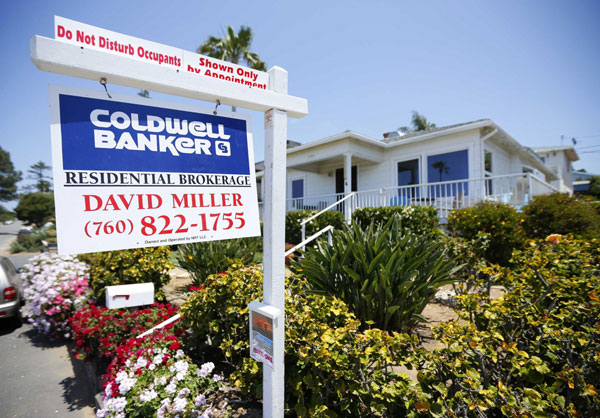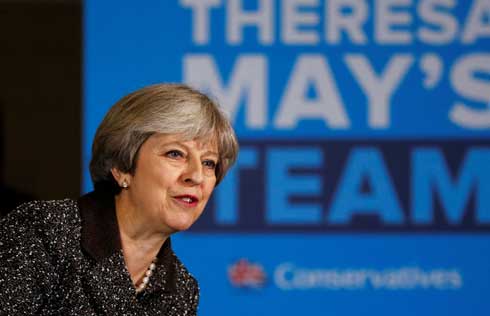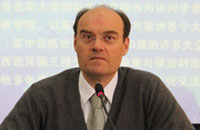Economic gains boost US confidence to 5-year high
"Rising home prices may begin to alleviate a lack of housing inventory ... by encouraging more homeowners to put their properties on the market," Maninder Sibia, an economist with Economic Advisory Service, said in a research note.
Builders are responding to the supply shortage by ramping up construction. Applications for building permits rose in April to the highest level in nearly five years. The supply of available homes jumped in April but was still 14 percent below its level a year earlier.
Stan Humphries, chief economist at Zillow, a real estate data provider, said the increase in the Case-Shiller index has been skewed higher by cities such as Phoenix and San Francisco. Fewer homes are available in those areas because many homeowners still owe more on their mortgages than their homes are worth. That makes it difficult to sell.
 |
|
A single family home is shown for sale in Encinitas, California, in this file photo taken May 22, 2013. [Photo/Agencies] |
Yet even excluding those markets, prices are rising steadily nationwide, Humphries said. The increases are "certainly confirmation that the housing market is experiencing a brisk recovery," he adds.
Rising prices typically encourage more would-be buyers to purchase homes before prices rise further. They also enable more homeowners to sell homes by reducing the number of people who owe more on their mortgages than the homes are worth.
Prices have been rising steadily since last summer. There are still about 29 percent below the peak reached in July 2006.
Banks have raised their credit standards since the housing bubble burst and are demanding larger down payments. That's made it hard for some potential first-time buyers to get a mortgage.
One potential obstacle to further economic gains is that workers' pay is rising only modestly. Without faster growth in pay, some consumers may be reluctant to keep spending more.
"If you don't think your income is going up, you will not be exuberant in your spending," notes Joel Naroff, chief economist at Naroff Economic Advisors.
Stronger hiring, though, would enable more people to spend freely. Naroff expects the pace of job creation to average 175,000 to 200,000 a month for the rest of the year.
At that rate, the Federal Reserve might be inclined to slow its aggressive bond purchases - $85 billion a month in Treasury and mortgage bonds. The bond purchases have been intended to drive down long-term loan rates to encourage borrowing and spending.
Super-low rates have also helped fuel the stock rally. But some investors have grown nervous that that Fed may soon start to curtail its pace of bond purchases and that rates could creep up.
Related stories:
Dow, S&P refresh all-time highs
US Fed to maintain stimulative monetary policy



















